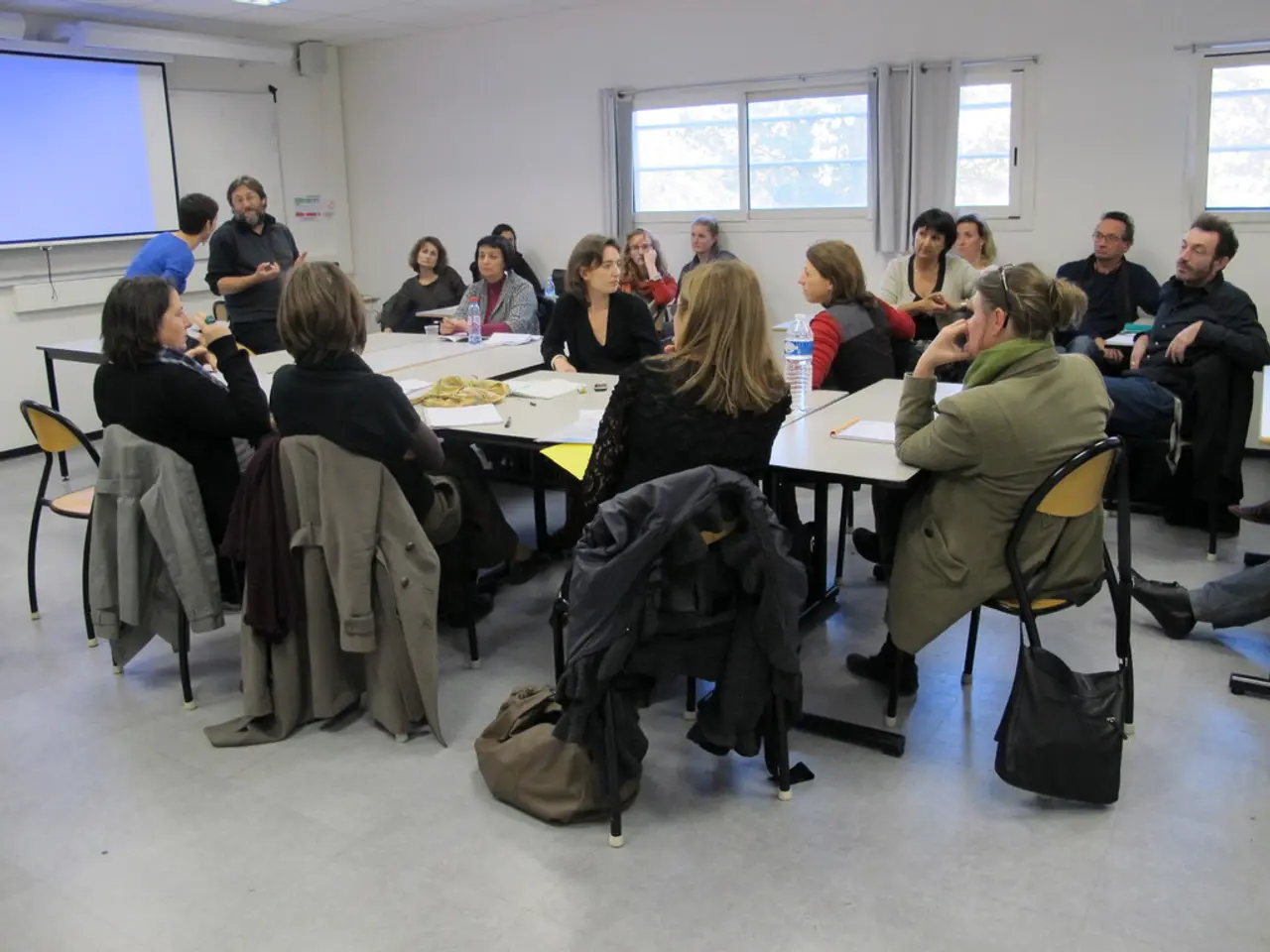Troublespots in Relationships: Five Common Practices That Often Lead to Splits Among Couples
In relationships, resentment can often creep in, even after just one event, but it frequently occurs after repeatedly feeling uncared for and disrespected. Here are some common behaviors that unintentionally cause resentment and ways to overcome them.
One such behavior is forgetting important dates or events, such as birthdays or anniversaries, and then downplaying their significance rather than making amends. This can make a partner feel unvalued and lead to resentment. To avoid this, set reminders and make an effort to celebrate special occasions.
Holding onto anger and hurt without addressing issues when they occur is another common cause of resentment. This can lead to explosive arguments where accumulated frustrations are suddenly dumped, causing the other partner to feel attacked. Instead, it's important to learn how to slow down and address issues in a relationship to prevent the buildup of resentment.
Repeatedly bringing up past mistakes and flaws without forgiveness can also create a sense of unfairness and imbalance of power that poisons the relationship over time. To avoid this, practice forgiveness and focus on moving forward.
Avoiding conflict and sweeping problems under the rug is another behavior that allows small unresolved issues to build tension and resentment beneath the surface. It's crucial to address issues head-on and work together to find solutions.
Emotional withdrawal or distancing in response to ongoing conflict can make one or both partners feel isolated and unimportant. Instead, communicate openly and honestly about your feelings.
Frequent arguments over the same unresolved issues can trap couples in cycles of blame and frustration. To break this cycle, try to understand your partner's perspective and work together to find a solution.
Passive-aggressive behavior, nit-picking, and criticism can subtly undermine the relationship and foster resentment. Instead, communicate your feelings directly and constructively.
Fake arguments or venting about the partner behind their back rather than expressing feelings directly reflects underlying resentment. Instead, communicate openly and honestly about your feelings.
Saying yes to requests while feeling annoyed internally indicates suppressed resentment. Instead, be honest about your feelings and find a way to address them.
When couples fail to solve their conflicts, a sense of resentment begins to emerge. Resentment increases when someone feels their feelings are discounted, not heard, manipulated, shamed, or judged. To overcome this, listen actively and empathetically to your partner's feelings.
In heterosexual relationships, an imbalance in shared responsibilities can lead to resentment. To avoid this, ensure that responsibilities are shared fairly and that both partners feel appreciated.
Recognizing possible problems and learning to spot signs of resentment is important in maintaining a healthy relationship. Delayed responses to requests for help can cause resentment. To avoid this, respond promptly and help out when asked.
When resentment arises, couples need to repair the situation by working through what has happened and making a plan for it not to occur again. A licensed counselor, such as Lisa Rabinowitz, a Certified Gottman Couples Therapist, can help couples develop more secure attachment styles for healthy, happy relationships.
In the first three years after a baby is born, couples are particularly vulnerable to unhappiness, with 67 percent of new parents being very unhappy during this time. However, by recognizing possible problems and learning to spot signs of resentment, couples can work to maintain a healthy relationship.
- Forgetting important dates or events and downplaying their significance can make a partner feel unvalued, leading to resentment. To avoid this, set reminders and make an effort to celebrate special occasions.
- Holding onto anger and hurt without addressing issues when they occur can lead to the buildup of resentment. Instead, learn how to slow down and address issues in a relationship to prevent resentment.
- Repeatedly bringing up past mistakes and flaws without forgiveness can create a sense of unfairness and imbalance of power that poisons the relationship over time. To avoid this, practice forgiveness and focus on moving forward.
- Avoiding conflict and sweeping problems under the rug allows small unresolved issues to build tension and resentment beneath the surface. It's crucial to address issues head-on and work together to find solutions.
- Emotional withdrawal or distancing in response to ongoing conflict can make one or both partners feel isolated and unimportant. Instead, communicate openly and honestly about your feelings.
- Frequent arguments over the same unresolved issues can trap couples in cycles of blame and frustration. To break this cycle, try to understand your partner's perspective and work together to find a solution.
- Passive-aggressive behavior, nit-picking, and criticism can subtly undermine the relationship and foster resentment. Instead, communicate your feelings directly and constructively.
- Fake arguments or venting about the partner behind their back reflects underlying resentment. Instead, communicate openly and honestly about your feelings.
- Saying yes to requests while feeling annoyed internally indicates suppressed resentment. Instead, be honest about your feelings and find a way to address them.
- When someone feels their feelings are discounted, not heard, manipulated, shamed, or judged, resentment increases. To overcome this, listen actively and empathetically to your partner's feelings.
- In heterosexual relationships, an imbalance in shared responsibilities can lead to resentment. To avoid this, ensure that responsibilities are shared fairly and that both partners feel appreciated.
- Delayed responses to requests for help can cause resentment. To avoid this, respond promptly and help out when asked.
- When resentment arises, couples need to repair the situation by working through what has happened and making a plan for it not to occur again. A licensed counselor can help couples develop more secure attachment styles for healthy, happy relationships.
- In the first three years after a baby is born, couples are particularly vulnerable to unhappiness, with 67 percent of new parents being very unhappy during this time. However, by recognizing possible problems and learning to spot signs of resentment, couples can work to maintain a healthy relationship.




